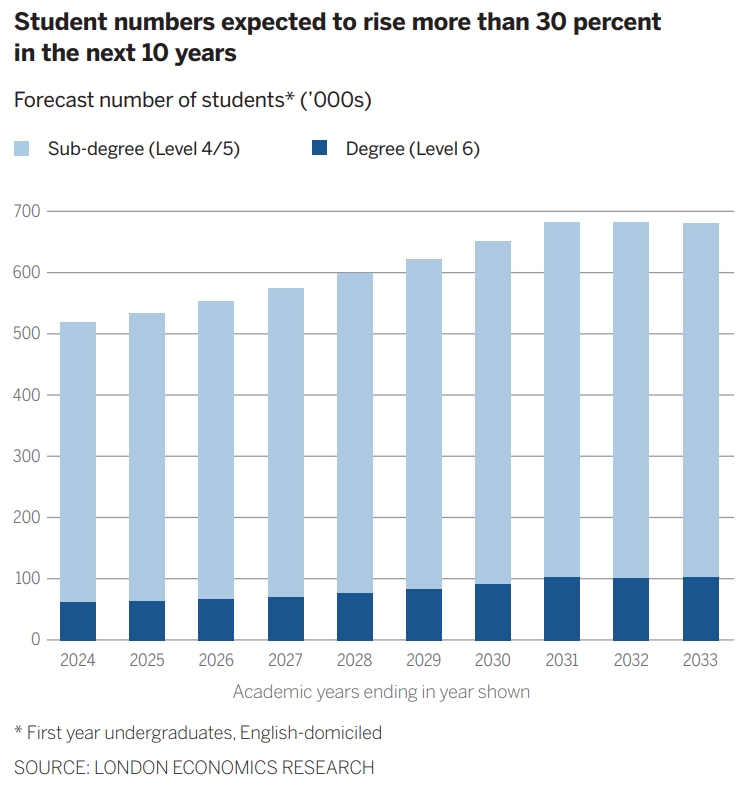Student surge sparks funding reform call
England's education system urged to adapt to demand for tech skills


Graduates needed
A recent survey of FTSE350 business leaders, published by advocacy organization Universities UK, suggested that more than 11 million extra graduates, in addition to the 15.3 million graduates currently in the United Kingdom's workforce, will be needed to fill jobs in the country by 2035 in key industries, including AI.
It reported that 88 percent of new jobs by 2035 will be at graduate level, and that the UK will need more than 1.9 million science, technology, engineering, and mathematics, or STEM, professionals by 2035.
It said the UK will need more than 1.2 million health and social care associate professionals, including opticians, medical technicians, housing officers and youth and community workers by 2035, and more than 1 million health professionals, such as doctors and nurses.
More than 1 million teaching and educational professionals, such as university and higher education teachers, will also be needed by 2035.
Due to AI, there will be a 10 percent net increase in jobs that require a degree during the next 20 years, the report noted.
According to the AoC study, which was conducted by business consultancy London Economics, if current trends persist, the estimated net annual cost of higher education funding is projected to reach 3.14 billion pounds ($3.9 billion) by 2030/31, adding pressure on government budgets, and thereby putting at risk the funding across the rest of the education system.
Funding for further education colleges in the UK comes from various sources, including government grants and allocations, while tuition fees and grants for research and teaching are the most significant sources of income for most higher education institutions, or universities.
Both universities and further education colleges are experiencing increasing financial pressures. British universities must attract higher-paying international students, who typically help subsidize domestic places that are offered at a financial loss, while further education, or technical colleges, are short of government funding in general.
Despite the government's announcement of a 900-million-pound increase in day-to-day funding for adult education and apprenticeships by 2024/25 during the last spending review, public expenditure on skills will still be 23 percent lower than the levels seen in 2009/10, as revealed by analysis from the Institute for Fiscal Studies think-tank.
Both sectors, further education and higher education, have highlighted the long-term impact of short-sighted reductions in public funding on the UK's productivity and prosperity.
The industry is working to find solutions to the funding crunch, with proposals including possible changes to the student loan initiative that could free up money for investment.
























